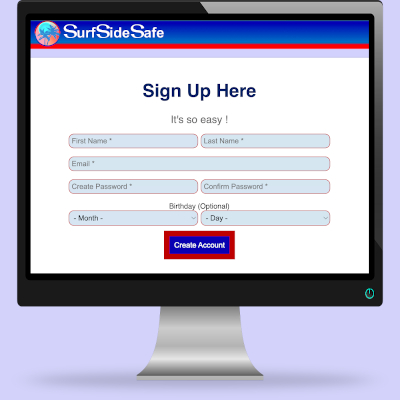Unraveling the Mystery: Understanding How Social Media Utilizes User Data |
 Social Media
Social Media
When you sign up for a social media account, you are required to provide personal information such as your name, email address, and birthday. This information is used by the platform to create a profile for you and tailor your experience based on your interests and demographics.
In essence, once your profile is created, they know almost everything about you. And what they don't know, they can find out.
While logged in to your account, social media platforms track your activity, including the posts you like, the pages you follow, and the ads you click on.
But here's what most users do not know. They also track your activity when you are not logged in to your social media account. They know about every Google search you do. For example, when you search for a particular product on Google, you will see an ad for this product the next time you log in to your social media account, because the platform has collected the data - your Google search. But that's not necessarily a bad thing. Social media platforms are in business to make money, and many earn revenue by selling affiliate products.
But it goes one step further. This data is valuable to advertisers, who use it to direct ads to you for any products or services you have searched for on Google. But there's more to this.
You can go to another website, which has nothing to do with the social media platform, and see the ad again. You don't even have to be logged in to the social media platform. The advertiser knows about you, and is going to bombard you with ads because you did a Google search. The advertiser believes you are likely to buy. Every where you go online, the advertiser will find you.
Platforms use many methods, including cookies, tracking pixels, and user-generated content. Cookies are small files that store information about your browsing activity. Tracking pixels are tiny, invisible images that track your visits and activity with any website you visit. Additionally, when you post photos, comments, or updates on social media, you are willingly sharing information about yourself with the platform.
You are also sharing information about yourself when you go to other websites, because they are watching you.
Once social media platforms have collected user data, they can use it in a number of ways. One common use of this data is targeted advertising, where ads are shown to users based on their interests and browsing history. This not only benefits advertisers by increasing the likelihood of sales, but also provides users with ads about products or services that interest them.
It is important to be aware of how social media platforms use your personal data. In a future article, we will show you how to protect your privacy online, and enjoy the benefits of social media while safeguarding your personal information.
Thank you for visiting us. Please visit us again. You are always welcome.
AND:
Remember! At SurfSideSafe, we are here to make your life much better.
Join SurfSideSafeCreating an account with SurfSideSafe is very easy.In a few minutes, you will have the best Social Media experience you have ever had in your life.  |

A calmer, safer, easier place to connect

Creating an account with SurfSideSafe is very easy.
In a few minutes, you will have the best Social Media experience you have ever had in your life.
